Caffeine Improves Exercise Performance
– Does Coffee Make Fit? –
There are many reasons why people rely on coffee on a regular basis.
Many people simply enjoy the deliciousness of coffee. Our vast and colorful coffee universe has endless, creative drink inventions to offer.
Others also swear on it, because it comes with a lot of great health benefits. In fact, some coffee enthusiasts even say that it makes us happier and live longer.
And then, there is also one of the most important ingredients of coffee.
Of course, we are talking about caffeine.
The widely appreciated stimulant helps us to get through our daily lives more efficiently. It provides us with a great energy boost.
In fact, caffeine is powerful substance in various regards. Indeed, it can improve our mental and physical performance as well.
Just a single dose can already significantly improve exercise performance, focus and fat burning.
This is quite remarkable news, right?
Furthermore, the US Special Forces even use caffeine to enhance performance and awareness.
Overall, we can find caffeine in many types of foods and beverages. Just in the US alone, over 90% of the population is consuming caffeine in some form on a regular basis.
For many caffeine consumers worldwide, coffee is the greatest source by far.
Here is everything to know about the fact that caffeine improves exercise performance. This article will share the potential benefits of it. And, have a look at potential side effects as well.
So, the question really is. Does coffee make fit?
How Does Caffeine Work?
In general, our body is rapidly absorbing caffeine into our bloodstream. Our blood levels are peaking after 90 to 100 minutes then.

Furthermore, these caffeine levels remain high for 3 to 4 hours. After, they are starting to drop again.
Unlike many other substances and supplements, caffeine can also affect cells throughout the entire body. This is also including muscle cells and brain.
In fact, caffeine has quite a lot of effects on our body. Here is an overview.
Caffeine Effects
- Nervous System – Caffeine activates certain areas of the brain and nervous system. As a result, it improves focus and energy. At the same time, it is reducing tiredness.
- Hormones – Caffeine comes with a very crucial hormone, called epinephrine. It is also called adrenaline. This hormone is responsible for the ‘fight or flight’ It can increase our performance.
- Fat Burning – Caffeine may increase the body’s ability to burn fat via lipolysis. Or, it can also trigger the breakdown of fat in fat cells.
- Endorphins – These hormones may increase feelings of wellness. On top, they commonly give you the so-called ‘exercise high’. People often experience it after working out.
- Muscles – Caffeine may also impact our motor cortex. It is a part of the brain, which signals muscle activation.
- Body Temperature – Also, caffeine seems to increase thermogenesis, or heat production. Consequently, it’s helping us to burn more calories.
- Glycogen – Caffeine may also spare muscle carb stores. This is primarily due to increased fat burning. It is just another reason why caffeine improves exercise performance.
After some time, the caffeine is eventually breaking down in the liver.
Summary of Why Caffeine Improves Exercise Performance
-
Endurance Performance
For many athletes, caffeine is one of the go-to supplements.

Because of its positive effects on exercise performance. Some sport organizations, such as the NCAA, have even started banning caffeine in high doses.
They believe that it would otherwise give unfair advantages to athletes, who are consuming much higher doses of caffeine than others.
There are quite a few interesting studies on how caffeine improves exercise performance.
For example, one study shows that about 400 mg of caffeine per day increases endurance in athletes. On average, they ran 2 to 2.3 km further than the participants using placebos instead.
Additionally, another group of scientists studied cyclists. The study showed that caffeine may generally be superior to carbs or water.
For instance, it increased the cyclists’ work load by up to 7.4%. This is compared to only 5.2% in the group that consumed carbs only.
Furthermore, another study aimed to combine both caffeine and carbs and highlight its effects.
As a result, you could notice performance improvements by 9% compared to water alone. And, by 4.6% compared to carbs alone.
Lastly, another quite interesting report tested coffee. Naturally, coffee has high levels of caffeine.
The concerning test was taking place during a 1,500-meter run.
On average, regular coffee drinkers ran 4.2 seconds faster than others drinking decaf coffee instead.
In addition, many other studies show that coffee is helping to reduce the perception of effort. This allows athletes to work harder and endure more.
Because, they are less likely to feel exhausted, mentally and physically.
To sum up, coffee and especially its caffeine have shown multiple times. That it causes major improvements regarding performance for endurance athletes.
-
High-Intensity Exercises – Caffeine Improves Exercise Performance
Our next topic is not entirely clear or set in stone yet.
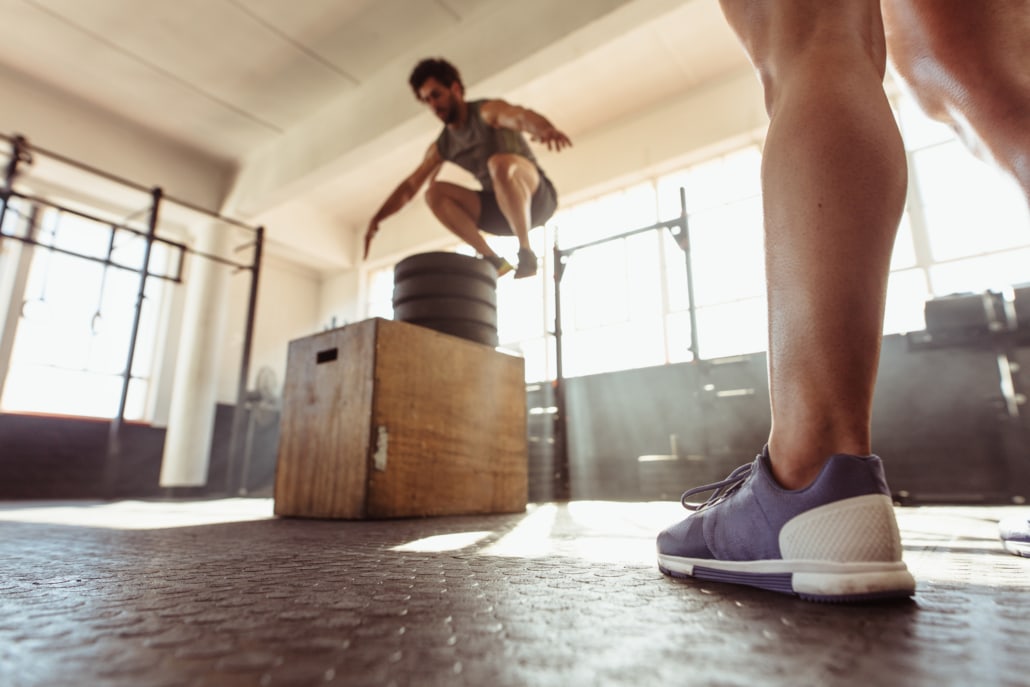
More research still needs to be done here. Currently, the evidence about the potential effects of caffeine on high-intensity exercise it still rather mixed.
Nonetheless, most health experts agree that caffeine has impressive benefits for trained athletes. However, there seem to be lesser benefits for beginners. Or, people who are mostly untrained.
A couple of studies observed less trained men doing bike sprints. Overall, they found no significant difference between the effects of caffeine and water.
But, the results were quite different for competitive athletes. They did similar bike sprints. In total, researchers were able to link caffeine to a significant improvement in power.
Another study highlights the effects of caffeine on trained and untrained swimmers.
Again, the final outcome was suggesting similar things. The trained group showed a positive improvement in power. On the other hand, the untrained participants showed no benefits.
Other studies analyzed team sports.
Here, caffeine supplements improved the passing accuracy in rugby, 500-meter rowing performance and soccer sprint times.
All of this is quite extraordinary. Wouldn’t you say so?
To sum up, the jury is still out there. There is no final opinion yet. But, it seems that for high-intensity sports like cycling or swimming. Caffeine may indeed benefit trained athletes.
However, caffeine does not necessarily improve exercise performance for untrained individuals.
-
Strength Exercises
This next point also still needs a bit more time until there is an overall scientific agreement.

Research has only begun here. The entire study around caffeine and strength or power-based activities is still emerging.
Nonetheless, several studies already report positive effects. But, the evidence is not entirely conclusive yet. It still seems too early to express any opinions with great confidence.
For example, there is one study on caffeine. It showed a positive effect on bench press. But at the same time, the study showed no effect on lower body strength or cycling sprints.
In addition, another huge comparison of a total of 27 studies took place. Results show that caffeine may improve leg muscle power by up to 7%. But, caffeine may have no effects on smaller muscle groups.
Moreover, caffeine may also improve our muscular endurance. This includes the amount of repetitions that we would be performing at a certain weight.
To sum up, most current research indicates positive effects.
Yes, caffeine may provide the most benefits for power-based activities. Mostly, this seems to affect larger muscle groups. And, when training in repetitions or circuits.
Overall, the research is mostly positive, but also still mixed.
-
Fat Burning or Fat Loss – Caffeine Improves Exercise Performance
There is one ingredient you can find in the majority of weight loss supplements. And, that’s caffeine.

Indeed, several research is showing that consuming caffeine before exercise increases the release of fat by 30%.
Even further studies found similar results. Namely, that caffeine supplements drastically increased the release of stored fat. This takes place before and at the end of a workout.
On top, caffeine may also help increasing the amount of fat you are burning during your exercise.
To be precise, the stimulant increases heat production and epinephrine in our body. Hence, it helps to burn additional calories and fat.
Regardless, maybe you have noticed one thing.
All of these quite amazing findings and results are rather short-term effects. As of now, there is no profound evidence suggesting that caffeine also supports weight loss in the long run.
Nonetheless, the overwhelming, scientifically public opinion is following. Caffeine helps with fat burning and fat loss one way or the other.
How do I Best Supplement With Caffeine?
Overall, you should probably keep several things in mind. This is when you are planning to supplement with caffeine.

Firstly, if you consume coffee, energy drinks, soda or dark chocolate quite regularly. You may very likely notice lesser benefits from caffeine supplements themselves.
Why is this?
Because, your body is simply too used to caffeine. It has developed a quite substantial tolerance to caffeine before already.
In general, caffeine anhydrous seems to be the most beneficial option. With this food item, caffeine improves exercise performance quite significantly.
Typically, manufacturers produce caffeine anhydrous from the seeds and leaves of coffee plants. The word ‘anhydrous’ stands for ‘without water’.
This means, that after harvesting, the caffeine is extracted from the plant matter. And after, you are dehydrating it.
As a result, you will get a highly concentrated caffeine powder.
Besides caffeine anhydrous, coffee is generally a very good option as well. Because, coffee additionally provides us with antioxidants and numerous health benefits, too.
Caffeine alone does not contain these extra beneficial factors.
How Much Caffeine is Okay?
Usually, we are calculating our own dose person by person.

It all more or less depends on our individual body weight. The general rule is around 3 to 6 mg of caffeine per kg of your body weight.
Consequently, this means about 200 to 400 mg of caffeine for most people per day.
Although, some studies even go as high as 600 to 900 mg. However, most health experts commonly recommend starting out with rather low doses. At around 150 to 200 mg.
This way, you can slowly experiment, potentially increase and eventually determine your own tolerance.
Later on, you can still scale up your daily dose up until 400, or even 600 mg. Try to find the point, when caffeine improves your exercise performance eventually and continuously.
In case you are a professional athlete or plan to participate in any sporting events. You should try to save a bigger caffeine dose for any of your key races or tournaments.
The less you are using caffeine regularly. The better you can maintain your overall sensitivity to its effects. Consequently, once you use it, you will benefit much more from it then.
If you are looking for optimal performance results in your sport area. Most reports suggest taking it about 60 minutes before a race or an event.
However, you should always test yourself, first. Don’t just rely on some product marketing or advertisements.
Make your own tests and experiences. This is especially important, if you are not used to taking caffeine yet.
Because, any excessive overdose may result in negative outcomes and side effects.
What Are Potential Caffeine Side Effects?
At a sensible and normal dose, caffeine actually provides many benefits. Additionally, there are only a few side effects to worry about then.

However, every person may react differently when consuming caffeine. For some people, it may be unsuitable and worse than for others.
Here is a quick overview of the most common side effects of too much caffeine.
- Anxiety
- Irritability
- Dizziness
- Insomnia or Sleep Disruption
- Tremors
- Stomach Discomfort
Especially high doses of 600 mg showed increased effects of tremors and restlessness. This is particularly the case for people that are normally not used to caffeine.
Furthermore, health experts advise people who are prone to anxiety to maybe avoid caffeine in high doses. Because, their usual anxiety symptoms can certainly worsen then.
Caffeine is also not recommended for people who take certain medication. Or, people who may have a heart condition or high blood pressure.
In addition, the actual timing may also matter more than most people might think.
For example, if you are consuming caffeine late-night or evening. It can disrupt your sleep. Overall, one should try to avoid any caffeine intake after 4 or 5 pm.
Finally, if you excessively overdose on extremely high amounts of caffeine, you could become seriously ill.
Please do not confuse milligrams with grams. And, try to consume caffeine in rather moderate ways. As mentioned already, caffeine is a fairly safe supplement at the recommended doses.
Typically, it only provides minor side effects to some people. The majority of consumers is usually fine.
Final Thought – Caffeine Improves Exercise Performance
The stimulant, caffeine, is surely one of the most effective supplements available. On top, it is also quite cheap. And, caffeine is relatively safe to use for most people.
There have been quite a lot of studies on caffeine and its effects already.
These reports show that caffeine can benefit endurance performance, high-intensity exercise. And also power sports.
However, trained athletes seem to benefit the most.
In general, the recommended daily caffeine dose varies by our own individual body weight. But, it is normally between 200 to 400 mg.
Before any workout, you should best take it 30 to 60 minutes prior.
If you are looking to use caffeine alone, caffeine anhydrous supplements are a very good option. But, also regular coffee is a very good alternative as well.
So, how about you?
How much caffeine or coffee do you usually consume per day? Have you ever experienced any troubling side effects?
And, what are some of the benefits of caffeine you noticed yourself?
Feel free to share your caffeine and coffee experiences with us.
Until then, stay safe, healthy and properly caffeinated.
Cheers!
Related Posts
 https://www.siamhillscoffee.com/wp-content/uploads/What-is-Caffeine-–-Is-it-Good-or-Bad-for-Your-Health-–-1.jpg
1414
2121
Siamhillscoffee
https://www.siamhillscoffee.com/wp-content/uploads/coffee-logo.png
Siamhillscoffee2021-04-25 11:19:442021-04-25 11:19:44What is Caffeine? – Is it Good or Bad for Your Health –
https://www.siamhillscoffee.com/wp-content/uploads/What-is-Caffeine-–-Is-it-Good-or-Bad-for-Your-Health-–-1.jpg
1414
2121
Siamhillscoffee
https://www.siamhillscoffee.com/wp-content/uploads/coffee-logo.png
Siamhillscoffee2021-04-25 11:19:442021-04-25 11:19:44What is Caffeine? – Is it Good or Bad for Your Health – https://www.siamhillscoffee.com/wp-content/uploads/How-Much-Caffeine-is-in-a-Cup-of-Coffee-All-You-Need-to-Know-–-1.jpg
1414
2121
Siamhillscoffee
https://www.siamhillscoffee.com/wp-content/uploads/coffee-logo.png
Siamhillscoffee2021-04-25 11:10:082021-04-25 11:10:08How Much Caffeine is in a Cup of Coffee – All You Need to Know –
https://www.siamhillscoffee.com/wp-content/uploads/How-Much-Caffeine-is-in-a-Cup-of-Coffee-All-You-Need-to-Know-–-1.jpg
1414
2121
Siamhillscoffee
https://www.siamhillscoffee.com/wp-content/uploads/coffee-logo.png
Siamhillscoffee2021-04-25 11:10:082021-04-25 11:10:08How Much Caffeine is in a Cup of Coffee – All You Need to Know – https://www.siamhillscoffee.com/wp-content/uploads/Coffee-and-Antioxidants-A-Complete-Overview-–-1.jpg
1413
2122
Siamhillscoffee
https://www.siamhillscoffee.com/wp-content/uploads/coffee-logo.png
Siamhillscoffee2021-03-14 03:52:072021-03-14 03:52:07Coffee and Antioxidants – A Complete Overview –
https://www.siamhillscoffee.com/wp-content/uploads/Coffee-and-Antioxidants-A-Complete-Overview-–-1.jpg
1413
2122
Siamhillscoffee
https://www.siamhillscoffee.com/wp-content/uploads/coffee-logo.png
Siamhillscoffee2021-03-14 03:52:072021-03-14 03:52:07Coffee and Antioxidants – A Complete Overview – https://www.siamhillscoffee.com/wp-content/uploads/Caffeine-Overdose-–-A-Review-on-How-Much-is-Too-Much-–-1.jpg
1414
2121
Siamhillscoffee
https://www.siamhillscoffee.com/wp-content/uploads/coffee-logo.png
Siamhillscoffee2021-03-14 03:44:312021-03-14 03:44:31Caffeine Overdose – A Review on How Much is Too Much –
https://www.siamhillscoffee.com/wp-content/uploads/Caffeine-Overdose-–-A-Review-on-How-Much-is-Too-Much-–-1.jpg
1414
2121
Siamhillscoffee
https://www.siamhillscoffee.com/wp-content/uploads/coffee-logo.png
Siamhillscoffee2021-03-14 03:44:312021-03-14 03:44:31Caffeine Overdose – A Review on How Much is Too Much –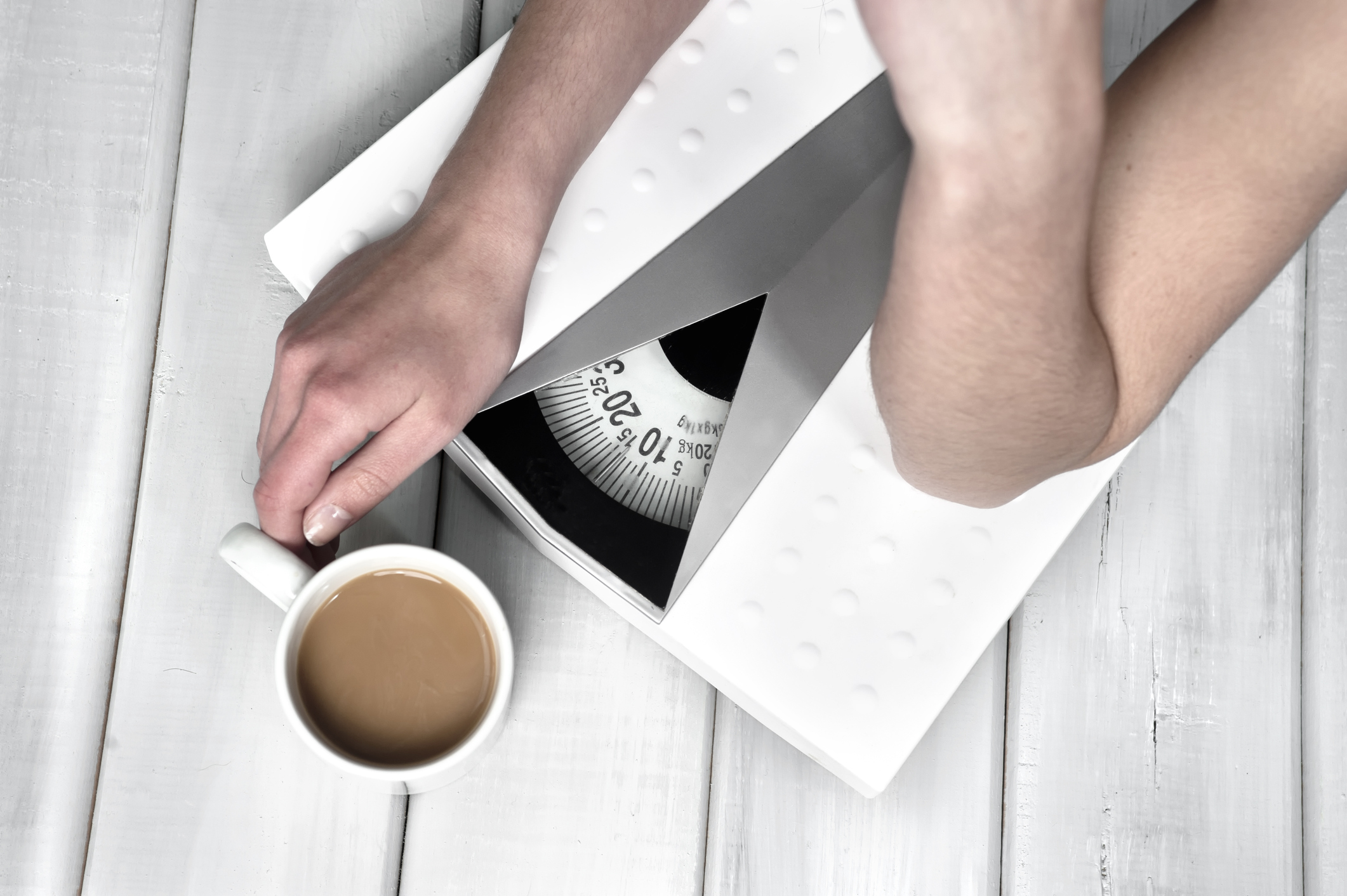 https://www.siamhillscoffee.com/wp-content/uploads/Lose-Weight-with-Coffee-–-Does-Coffee-Help-Burning-Fat-–-1.jpg
1412
2122
Siamhillscoffee
https://www.siamhillscoffee.com/wp-content/uploads/coffee-logo.png
Siamhillscoffee2021-03-14 03:34:242021-03-14 03:34:24Lose Weight with Coffee – Does Coffee Help Burning Fat? –
https://www.siamhillscoffee.com/wp-content/uploads/Lose-Weight-with-Coffee-–-Does-Coffee-Help-Burning-Fat-–-1.jpg
1412
2122
Siamhillscoffee
https://www.siamhillscoffee.com/wp-content/uploads/coffee-logo.png
Siamhillscoffee2021-03-14 03:34:242021-03-14 03:34:24Lose Weight with Coffee – Does Coffee Help Burning Fat? –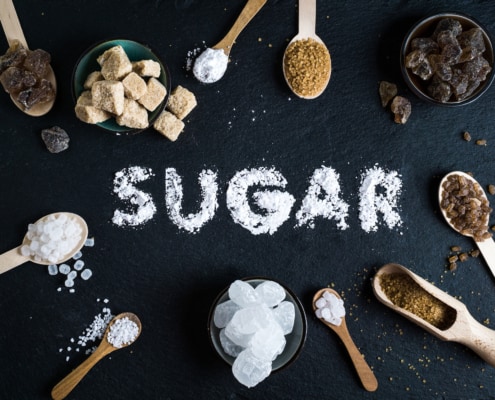 https://www.siamhillscoffee.com/wp-content/uploads/Natural-Coffee-Sweeteners-–-Best-Natural-Sugar-Substitutes-For-You-–-1.jpg
1502
1997
Siamhillscoffee
https://www.siamhillscoffee.com/wp-content/uploads/coffee-logo.png
Siamhillscoffee2021-02-20 05:43:182021-03-03 07:41:19Natural Coffee Sweeteners – Best Natural Sugar Substitutes For You –
https://www.siamhillscoffee.com/wp-content/uploads/Natural-Coffee-Sweeteners-–-Best-Natural-Sugar-Substitutes-For-You-–-1.jpg
1502
1997
Siamhillscoffee
https://www.siamhillscoffee.com/wp-content/uploads/coffee-logo.png
Siamhillscoffee2021-02-20 05:43:182021-03-03 07:41:19Natural Coffee Sweeteners – Best Natural Sugar Substitutes For You – https://www.siamhillscoffee.com/wp-content/uploads/Great-Milk-Alternatives-–-Your-9-Best-Nondairy-Substitutes-for-Milk-–-1-scaled.jpg
1707
2560
Siamhillscoffee
https://www.siamhillscoffee.com/wp-content/uploads/coffee-logo.png
Siamhillscoffee2021-02-20 05:26:492021-03-03 10:47:18Great Milk Alternatives – Your 9 Best Nondairy Substitutes for Milk –
https://www.siamhillscoffee.com/wp-content/uploads/Great-Milk-Alternatives-–-Your-9-Best-Nondairy-Substitutes-for-Milk-–-1-scaled.jpg
1707
2560
Siamhillscoffee
https://www.siamhillscoffee.com/wp-content/uploads/coffee-logo.png
Siamhillscoffee2021-02-20 05:26:492021-03-03 10:47:18Great Milk Alternatives – Your 9 Best Nondairy Substitutes for Milk – https://www.siamhillscoffee.com/wp-content/uploads/Make-Your-Coffee-Healthy-–-Best-10-Ways-For-A-Better-Coffee-Experience-–-1.jpg
1414
2121
Siamhillscoffee
https://www.siamhillscoffee.com/wp-content/uploads/coffee-logo.png
Siamhillscoffee2021-02-12 08:13:182021-03-03 10:57:16Make Your Coffee Healthy – Best 10 Ways For A Better Coffee Experience –
https://www.siamhillscoffee.com/wp-content/uploads/Make-Your-Coffee-Healthy-–-Best-10-Ways-For-A-Better-Coffee-Experience-–-1.jpg
1414
2121
Siamhillscoffee
https://www.siamhillscoffee.com/wp-content/uploads/coffee-logo.png
Siamhillscoffee2021-02-12 08:13:182021-03-03 10:57:16Make Your Coffee Healthy – Best 10 Ways For A Better Coffee Experience – https://www.siamhillscoffee.com/wp-content/uploads/10-Best-Ways-to-Eat-Less-Sugar-–-How-to-Cut-Down-on-Sugar-–-1-scaled.jpg
1709
2560
Siamhillscoffee
https://www.siamhillscoffee.com/wp-content/uploads/coffee-logo.png
Siamhillscoffee2021-02-12 08:07:142021-03-03 10:58:4810 Best Ways to Eat Less Sugar – How to Cut Down on Sugar –
https://www.siamhillscoffee.com/wp-content/uploads/10-Best-Ways-to-Eat-Less-Sugar-–-How-to-Cut-Down-on-Sugar-–-1-scaled.jpg
1709
2560
Siamhillscoffee
https://www.siamhillscoffee.com/wp-content/uploads/coffee-logo.png
Siamhillscoffee2021-02-12 08:07:142021-03-03 10:58:4810 Best Ways to Eat Less Sugar – How to Cut Down on Sugar – https://www.siamhillscoffee.com/wp-content/uploads/Decaf-Coffee-–-Is-Decaffeinated-Coffee-Good-or-Bad-–-1.jpg
1415
2120
Siamhillscoffee
https://www.siamhillscoffee.com/wp-content/uploads/coffee-logo.png
Siamhillscoffee2021-02-12 07:57:572021-03-03 11:01:42Decaf Coffee – Is Decaffeinated Coffee Good or Bad? –
https://www.siamhillscoffee.com/wp-content/uploads/Decaf-Coffee-–-Is-Decaffeinated-Coffee-Good-or-Bad-–-1.jpg
1415
2120
Siamhillscoffee
https://www.siamhillscoffee.com/wp-content/uploads/coffee-logo.png
Siamhillscoffee2021-02-12 07:57:572021-03-03 11:01:42Decaf Coffee – Is Decaffeinated Coffee Good or Bad? – https://www.siamhillscoffee.com/wp-content/uploads/Coffee-Acidity-–-Everything-You-Need-to-Know-–-1-scaled.jpg
1707
2560
Siamhillscoffee
https://www.siamhillscoffee.com/wp-content/uploads/coffee-logo.png
Siamhillscoffee2021-02-12 07:52:442021-03-03 11:02:58Coffee Acidity – Everything You Need to Know –
https://www.siamhillscoffee.com/wp-content/uploads/Coffee-Acidity-–-Everything-You-Need-to-Know-–-1-scaled.jpg
1707
2560
Siamhillscoffee
https://www.siamhillscoffee.com/wp-content/uploads/coffee-logo.png
Siamhillscoffee2021-02-12 07:52:442021-03-03 11:02:58Coffee Acidity – Everything You Need to Know –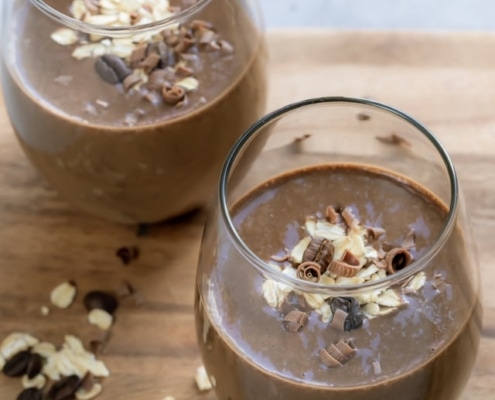 https://www.siamhillscoffee.com/wp-content/uploads/10-Best-Coffee-Protein-Shakes-–-Make-Your-Morning-Better-–-1.jpg
960
640
Siamhillscoffee
https://www.siamhillscoffee.com/wp-content/uploads/coffee-logo.png
Siamhillscoffee2021-02-12 07:48:282021-03-03 11:04:1910 Best Coffee Protein Shakes – Make Your Morning Better –
https://www.siamhillscoffee.com/wp-content/uploads/10-Best-Coffee-Protein-Shakes-–-Make-Your-Morning-Better-–-1.jpg
960
640
Siamhillscoffee
https://www.siamhillscoffee.com/wp-content/uploads/coffee-logo.png
Siamhillscoffee2021-02-12 07:48:282021-03-03 11:04:1910 Best Coffee Protein Shakes – Make Your Morning Better – https://www.siamhillscoffee.com/wp-content/uploads/We-Love-Coffee-–-10-Best-Reasons-Why-Coffee-is-Good-For-You-1-scaled.jpg
1707
2560
Siamhillscoffee
https://www.siamhillscoffee.com/wp-content/uploads/coffee-logo.png
Siamhillscoffee2021-02-12 07:43:082021-03-03 11:05:47We Love Coffee – 10 Best Reasons Why Coffee is Good For You –
https://www.siamhillscoffee.com/wp-content/uploads/We-Love-Coffee-–-10-Best-Reasons-Why-Coffee-is-Good-For-You-1-scaled.jpg
1707
2560
Siamhillscoffee
https://www.siamhillscoffee.com/wp-content/uploads/coffee-logo.png
Siamhillscoffee2021-02-12 07:43:082021-03-03 11:05:47We Love Coffee – 10 Best Reasons Why Coffee is Good For You – https://www.siamhillscoffee.com/wp-content/uploads/What-is-Chicory-Coffee-–-A-Healthy-Alternative-to-Coffee-or-Not-–-1-scaled.jpg
1747
2560
Siamhillscoffee
https://www.siamhillscoffee.com/wp-content/uploads/coffee-logo.png
Siamhillscoffee2021-02-12 07:37:062021-03-03 11:06:59What is Chicory Coffee? – A Healthy Alternative to Coffee or Not –
https://www.siamhillscoffee.com/wp-content/uploads/What-is-Chicory-Coffee-–-A-Healthy-Alternative-to-Coffee-or-Not-–-1-scaled.jpg
1747
2560
Siamhillscoffee
https://www.siamhillscoffee.com/wp-content/uploads/coffee-logo.png
Siamhillscoffee2021-02-12 07:37:062021-03-03 11:06:59What is Chicory Coffee? – A Healthy Alternative to Coffee or Not – https://www.siamhillscoffee.com/wp-content/uploads/10-Best-Natural-Sugar-Substitutes-–-Your-Healthier-Sugar-Alternatives-to-Try-–-1-scaled.jpg
1707
2560
Siamhillscoffee
https://www.siamhillscoffee.com/wp-content/uploads/coffee-logo.png
Siamhillscoffee2021-02-12 07:32:372021-03-03 11:08:1810 Best Natural Sugar Substitutes – Your Healthier Sugar Alternatives to Try –
https://www.siamhillscoffee.com/wp-content/uploads/10-Best-Natural-Sugar-Substitutes-–-Your-Healthier-Sugar-Alternatives-to-Try-–-1-scaled.jpg
1707
2560
Siamhillscoffee
https://www.siamhillscoffee.com/wp-content/uploads/coffee-logo.png
Siamhillscoffee2021-02-12 07:32:372021-03-03 11:08:1810 Best Natural Sugar Substitutes – Your Healthier Sugar Alternatives to Try – https://www.siamhillscoffee.com/wp-content/uploads/Caffeine-Withdrawal-and-Headaches-–-7-Tips-for-Relief-and-More-–-1-scaled.jpg
1707
2560
Siamhillscoffee
https://www.siamhillscoffee.com/wp-content/uploads/coffee-logo.png
Siamhillscoffee2021-02-12 07:16:582021-03-03 11:12:51Caffeine Withdrawal and Headaches – 7 Tips for Relief and More –
https://www.siamhillscoffee.com/wp-content/uploads/Caffeine-Withdrawal-and-Headaches-–-7-Tips-for-Relief-and-More-–-1-scaled.jpg
1707
2560
Siamhillscoffee
https://www.siamhillscoffee.com/wp-content/uploads/coffee-logo.png
Siamhillscoffee2021-02-12 07:16:582021-03-03 11:12:51Caffeine Withdrawal and Headaches – 7 Tips for Relief and More – https://www.siamhillscoffee.com/wp-content/uploads/20-Best-Ground-Coffee-Recipes-9.jpg
896
640
Siamhillscoffee
https://www.siamhillscoffee.com/wp-content/uploads/coffee-logo.png
Siamhillscoffee2021-02-12 07:10:502021-03-03 11:14:2220 Best Ground Coffee Recipes – Make Delicious Food With Coffee –
https://www.siamhillscoffee.com/wp-content/uploads/20-Best-Ground-Coffee-Recipes-9.jpg
896
640
Siamhillscoffee
https://www.siamhillscoffee.com/wp-content/uploads/coffee-logo.png
Siamhillscoffee2021-02-12 07:10:502021-03-03 11:14:2220 Best Ground Coffee Recipes – Make Delicious Food With Coffee –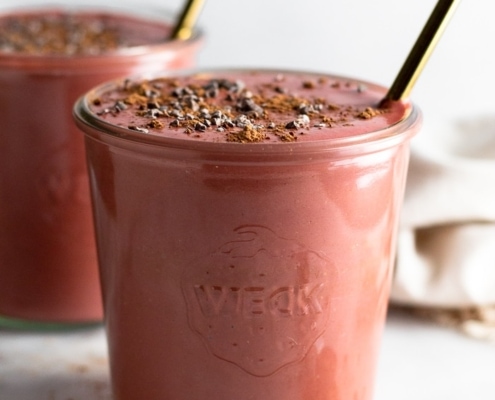 https://www.siamhillscoffee.com/wp-content/uploads/15-Great-Coffee-Breakfast-Smoothies-–-Simply-Delicious-Ways-to-Boost-Your-Morning-–14.jpg
1050
700
Siamhillscoffee
https://www.siamhillscoffee.com/wp-content/uploads/coffee-logo.png
Siamhillscoffee2021-02-12 06:52:492021-03-03 11:46:4615 Great Coffee Breakfast Smoothies – Delicious Ways to Boost Your Morning –
https://www.siamhillscoffee.com/wp-content/uploads/15-Great-Coffee-Breakfast-Smoothies-–-Simply-Delicious-Ways-to-Boost-Your-Morning-–14.jpg
1050
700
Siamhillscoffee
https://www.siamhillscoffee.com/wp-content/uploads/coffee-logo.png
Siamhillscoffee2021-02-12 06:52:492021-03-03 11:46:4615 Great Coffee Breakfast Smoothies – Delicious Ways to Boost Your Morning – https://www.siamhillscoffee.com/wp-content/uploads/Caffeine-Improves-Exercise-Performance-–-Does-Coffee-Make-Fit-–-1-scaled.jpg
1707
2560
Siamhillscoffee
https://www.siamhillscoffee.com/wp-content/uploads/coffee-logo.png
Siamhillscoffee2021-02-12 05:58:522021-03-03 11:49:58Caffeine Improves Exercise Performance – Does Coffee Make Fit? –
https://www.siamhillscoffee.com/wp-content/uploads/Caffeine-Improves-Exercise-Performance-–-Does-Coffee-Make-Fit-–-1-scaled.jpg
1707
2560
Siamhillscoffee
https://www.siamhillscoffee.com/wp-content/uploads/coffee-logo.png
Siamhillscoffee2021-02-12 05:58:522021-03-03 11:49:58Caffeine Improves Exercise Performance – Does Coffee Make Fit? – https://www.siamhillscoffee.com/wp-content/uploads/Is-Coffee-Addictive-–-A-Critical-Look-at-Coffee-and-Caffeine-–-1-scaled.jpg
1707
2560
Siamhillscoffee
https://www.siamhillscoffee.com/wp-content/uploads/coffee-logo.png
Siamhillscoffee2021-02-12 05:38:012021-03-03 11:55:00Is Coffee Addictive? – A Critical Look at Coffee and Caffeine –
https://www.siamhillscoffee.com/wp-content/uploads/Is-Coffee-Addictive-–-A-Critical-Look-at-Coffee-and-Caffeine-–-1-scaled.jpg
1707
2560
Siamhillscoffee
https://www.siamhillscoffee.com/wp-content/uploads/coffee-logo.png
Siamhillscoffee2021-02-12 05:38:012021-03-03 11:55:00Is Coffee Addictive? – A Critical Look at Coffee and Caffeine – https://www.siamhillscoffee.com/wp-content/uploads/Caffeine-and-Migraines-–-Does-Caffeine-Trigger-or-Treat-Migraines-–-2-scaled.jpg
1707
2560
Siamhillscoffee
https://www.siamhillscoffee.com/wp-content/uploads/coffee-logo.png
Siamhillscoffee2021-02-12 05:06:562021-03-03 12:03:40Caffeine and Migraines – Does Caffeine Trigger or Treat Migraines –
https://www.siamhillscoffee.com/wp-content/uploads/Caffeine-and-Migraines-–-Does-Caffeine-Trigger-or-Treat-Migraines-–-2-scaled.jpg
1707
2560
Siamhillscoffee
https://www.siamhillscoffee.com/wp-content/uploads/coffee-logo.png
Siamhillscoffee2021-02-12 05:06:562021-03-03 12:03:40Caffeine and Migraines – Does Caffeine Trigger or Treat Migraines – https://www.siamhillscoffee.com/wp-content/uploads/Caffeine-And-Your-Body-Everything-to-Know-About-Caffeine-Effects-–-2-scaled.jpg
1707
2560
Siamhillscoffee
https://www.siamhillscoffee.com/wp-content/uploads/coffee-logo.png
Siamhillscoffee2021-02-12 04:44:592021-03-03 12:09:01Caffeine And Your Body – Everything to Know About Caffeine Effects –
https://www.siamhillscoffee.com/wp-content/uploads/Caffeine-And-Your-Body-Everything-to-Know-About-Caffeine-Effects-–-2-scaled.jpg
1707
2560
Siamhillscoffee
https://www.siamhillscoffee.com/wp-content/uploads/coffee-logo.png
Siamhillscoffee2021-02-12 04:44:592021-03-03 12:09:01Caffeine And Your Body – Everything to Know About Caffeine Effects – https://www.siamhillscoffee.com/wp-content/uploads/How-To-Open-A-Coffee-Shop-The-10-Most-Important-Steps-1-scaled.jpg
1708
2560
Siamhillscoffee
https://www.siamhillscoffee.com/wp-content/uploads/coffee-logo.png
Siamhillscoffee2021-02-12 04:37:232021-03-03 12:10:33How To Open A Coffee Shop – The 10 Most Important Steps
https://www.siamhillscoffee.com/wp-content/uploads/How-To-Open-A-Coffee-Shop-The-10-Most-Important-Steps-1-scaled.jpg
1708
2560
Siamhillscoffee
https://www.siamhillscoffee.com/wp-content/uploads/coffee-logo.png
Siamhillscoffee2021-02-12 04:37:232021-03-03 12:10:33How To Open A Coffee Shop – The 10 Most Important Steps https://www.siamhillscoffee.com/wp-content/uploads/How-To-Sell-Coffee-Online-–-Open-Your-Own-Online-Coffee-Shop-1-scaled.jpg
1697
2560
Siamhillscoffee
https://www.siamhillscoffee.com/wp-content/uploads/coffee-logo.png
Siamhillscoffee2021-02-12 04:32:292021-03-03 12:12:06How To Sell Coffee Online – Open Your Own Online Coffee Shop
https://www.siamhillscoffee.com/wp-content/uploads/How-To-Sell-Coffee-Online-–-Open-Your-Own-Online-Coffee-Shop-1-scaled.jpg
1697
2560
Siamhillscoffee
https://www.siamhillscoffee.com/wp-content/uploads/coffee-logo.png
Siamhillscoffee2021-02-12 04:32:292021-03-03 12:12:06How To Sell Coffee Online – Open Your Own Online Coffee Shop https://www.siamhillscoffee.com/wp-content/uploads/Caffeine-and-Depression-Does-Caffeine-Help-with-Depression-–-1-scaled.jpg
1707
2560
Siamhillscoffee
https://www.siamhillscoffee.com/wp-content/uploads/coffee-logo.png
Siamhillscoffee2021-02-12 04:23:222021-03-03 12:13:42Caffeine and Depression – Does Caffeine Help with Depression? –
https://www.siamhillscoffee.com/wp-content/uploads/Caffeine-and-Depression-Does-Caffeine-Help-with-Depression-–-1-scaled.jpg
1707
2560
Siamhillscoffee
https://www.siamhillscoffee.com/wp-content/uploads/coffee-logo.png
Siamhillscoffee2021-02-12 04:23:222021-03-03 12:13:42Caffeine and Depression – Does Caffeine Help with Depression? – https://www.siamhillscoffee.com/wp-content/uploads/20-Best-Coffee-Dessert-Recipes-–-Your-Perfectly-Delicious-Coffee-Treat-–-1-scaled.jpg
1708
2560
Siamhillscoffee
https://www.siamhillscoffee.com/wp-content/uploads/coffee-logo.png
Siamhillscoffee2021-02-12 04:13:312021-03-03 12:17:1120 Best Coffee Dessert Recipes – Your Perfectly Delicious Coffee Treat –
https://www.siamhillscoffee.com/wp-content/uploads/20-Best-Coffee-Dessert-Recipes-–-Your-Perfectly-Delicious-Coffee-Treat-–-1-scaled.jpg
1708
2560
Siamhillscoffee
https://www.siamhillscoffee.com/wp-content/uploads/coffee-logo.png
Siamhillscoffee2021-02-12 04:13:312021-03-03 12:17:1120 Best Coffee Dessert Recipes – Your Perfectly Delicious Coffee Treat – https://www.siamhillscoffee.com/wp-content/uploads/Coffee-and-Caffeine-–-How-Much-Caffeine-is-Okay-for-You-–-1-scaled.jpg
1709
2560
Siamhillscoffee
https://www.siamhillscoffee.com/wp-content/uploads/coffee-logo.png
Siamhillscoffee2021-02-12 03:54:492021-03-03 12:25:58Coffee and Caffeine – How Much Caffeine is Okay for You? –
https://www.siamhillscoffee.com/wp-content/uploads/Coffee-and-Caffeine-–-How-Much-Caffeine-is-Okay-for-You-–-1-scaled.jpg
1709
2560
Siamhillscoffee
https://www.siamhillscoffee.com/wp-content/uploads/coffee-logo.png
Siamhillscoffee2021-02-12 03:54:492021-03-03 12:25:58Coffee and Caffeine – How Much Caffeine is Okay for You? – https://www.siamhillscoffee.com/wp-content/uploads/Make-Your-Coffee-Better-–-6-Fun-Ways-to-Boost-Your-Coffee-–-1-scaled.jpg
1709
2560
Siamhillscoffee
https://www.siamhillscoffee.com/wp-content/uploads/coffee-logo.png
Siamhillscoffee2021-02-12 03:45:112021-03-03 12:29:07Make Your Coffee Better – 6 Fun Ways to Boost Your Coffee –
https://www.siamhillscoffee.com/wp-content/uploads/Make-Your-Coffee-Better-–-6-Fun-Ways-to-Boost-Your-Coffee-–-1-scaled.jpg
1709
2560
Siamhillscoffee
https://www.siamhillscoffee.com/wp-content/uploads/coffee-logo.png
Siamhillscoffee2021-02-12 03:45:112021-03-03 12:29:07Make Your Coffee Better – 6 Fun Ways to Boost Your Coffee – https://www.siamhillscoffee.com/wp-content/uploads/Eating-Coffee-Beans-–-Yummy-Healthy-or-Stupid-–-1.jpg
1414
2121
Siamhillscoffee
https://www.siamhillscoffee.com/wp-content/uploads/coffee-logo.png
Siamhillscoffee2021-02-12 03:04:352021-03-03 12:37:32Eating Coffee Beans – Yummy, Healthy or Stupid –
https://www.siamhillscoffee.com/wp-content/uploads/Eating-Coffee-Beans-–-Yummy-Healthy-or-Stupid-–-1.jpg
1414
2121
Siamhillscoffee
https://www.siamhillscoffee.com/wp-content/uploads/coffee-logo.png
Siamhillscoffee2021-02-12 03:04:352021-03-03 12:37:32Eating Coffee Beans – Yummy, Healthy or Stupid – https://www.siamhillscoffee.com/wp-content/uploads/Caffeine-Side-Effects-–-10-Side-Effects-of-Too-Much-Caffeine-–-1.jpg
1414
2119
Siamhillscoffee
https://www.siamhillscoffee.com/wp-content/uploads/coffee-logo.png
Siamhillscoffee2021-02-12 02:58:352021-03-03 12:39:16Caffeine Side Effects – 10 Side Effects of Too Much Caffeine –
https://www.siamhillscoffee.com/wp-content/uploads/Caffeine-Side-Effects-–-10-Side-Effects-of-Too-Much-Caffeine-–-1.jpg
1414
2119
Siamhillscoffee
https://www.siamhillscoffee.com/wp-content/uploads/coffee-logo.png
Siamhillscoffee2021-02-12 02:58:352021-03-03 12:39:16Caffeine Side Effects – 10 Side Effects of Too Much Caffeine – https://www.siamhillscoffee.com/wp-content/uploads/A-Coffee-Journey-–-10-Steps-From-the-Seed-to-Your-Cup-–-1-scaled.jpg
1700
2560
Siamhillscoffee
https://www.siamhillscoffee.com/wp-content/uploads/coffee-logo.png
Siamhillscoffee2021-02-12 02:31:102021-02-20 14:09:30A Coffee Journey – 10 Steps From the Seed to Your Cup –
https://www.siamhillscoffee.com/wp-content/uploads/A-Coffee-Journey-–-10-Steps-From-the-Seed-to-Your-Cup-–-1-scaled.jpg
1700
2560
Siamhillscoffee
https://www.siamhillscoffee.com/wp-content/uploads/coffee-logo.png
Siamhillscoffee2021-02-12 02:31:102021-02-20 14:09:30A Coffee Journey – 10 Steps From the Seed to Your Cup – https://www.siamhillscoffee.com/wp-content/uploads/Coffee-Diet-–-Can-You-Really-Lose-Weight-With-Coffee-–-1-2-scaled.jpg
1708
2560
Siamhillscoffee
https://www.siamhillscoffee.com/wp-content/uploads/coffee-logo.png
Siamhillscoffee2021-02-12 02:07:232021-03-03 13:38:57Coffee Diet – Can You Really Lose Weight With Coffee? –
https://www.siamhillscoffee.com/wp-content/uploads/Coffee-Diet-–-Can-You-Really-Lose-Weight-With-Coffee-–-1-2-scaled.jpg
1708
2560
Siamhillscoffee
https://www.siamhillscoffee.com/wp-content/uploads/coffee-logo.png
Siamhillscoffee2021-02-12 02:07:232021-03-03 13:38:57Coffee Diet – Can You Really Lose Weight With Coffee? – https://www.siamhillscoffee.com/wp-content/uploads/10_reasons_to_drink_coffee_every_day.jpg
1414
2121
Siamhillscoffee
https://www.siamhillscoffee.com/wp-content/uploads/coffee-logo.png
Siamhillscoffee2019-11-05 07:26:292021-03-03 13:31:5310 Reasons to Drink Coffee Every Day
https://www.siamhillscoffee.com/wp-content/uploads/10_reasons_to_drink_coffee_every_day.jpg
1414
2121
Siamhillscoffee
https://www.siamhillscoffee.com/wp-content/uploads/coffee-logo.png
Siamhillscoffee2019-11-05 07:26:292021-03-03 13:31:5310 Reasons to Drink Coffee Every Day


